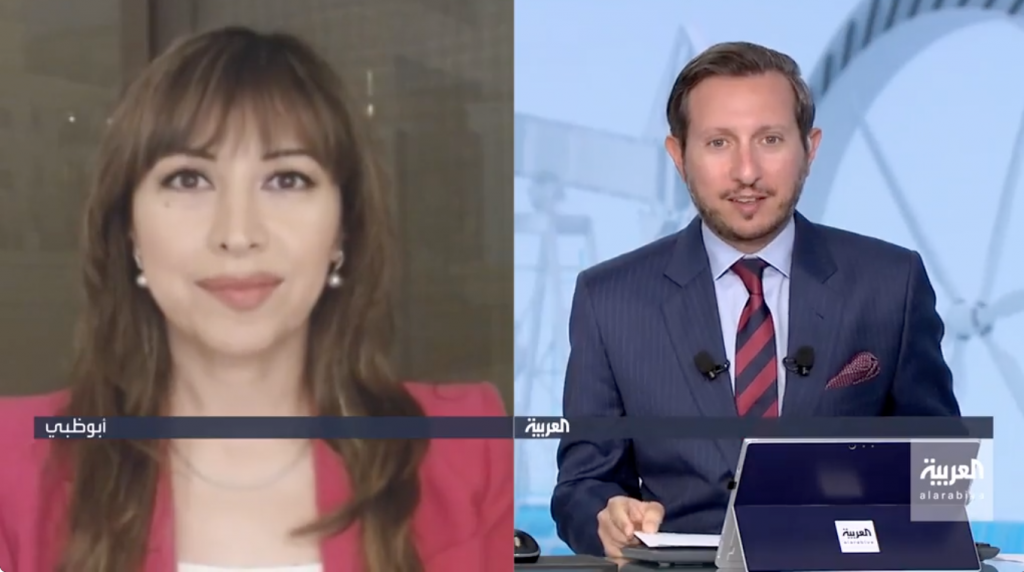In this interview with Naser El Tibi from Al Arabiya, Dr Carole Nakhle, CEO of Crystol Energy, discusses the latest developments in the European gas crisis and global oil markets.
Commenting on the statement made by the head of the International Energy Agency (IEA), Dr Fatih Birol, who blamed Russia for deliberately causing the gas crisis in Europe and ‘the return of geopolitics’, Dr Nakhle argued that geopolitics and energy are nearly always intertwined, however, their effect is more notable when prices are increasing at an alarming rate and energy supply is scarce. It is no secret that Russia’s economic, energy, and foreign policies are in tune. Russia wants to achieve several objectives in the European gas market, including asserting itself as an indispensable gas supplier and the more pipelines particularly Nord Stream II the better. It also wants to minimise its dependence on Ukraine as a major transit route. In the 1990s, nearly 95% of Russia’s gas exports to Europe passed through Ukraine, today it is around 40% and with Nord Stream II it would fall to 13%.
As for oil markets, Dr Nakhle assured that in countries with high vaccination rates such as the US and Europe, covid-related restrictions are being eased due to the low hospitalisation rates in these countries, with this translating into a strength in oil demand growth. In China, however, the situation is different as the government is adopting a zero-covid policy in fear of the virus causing major disruptions before the Winter Olympics this year. The picture is not clear, and if China doesn’t alter its strategy in the fight against Covid, we might see the growth in oil demand weakening.
Dr Nakhle pointed out that some members of OPEC+ are struggling to meet their assigned production quotas, but this won’t affect the group’s ability to introduce more barrels as the defacto leader, Saudi Arabia, still holds record spare capacity to be released in the markets if needed. In addition, we are seeing that more supply is coming from key areas, such as Guyana, the US, Norway and Canada, thereby, easing the pressure on the producer organisation.
Watch the discussion (in Arabic)
Related Analysis
“European gas crunch: Calm before the storm?“, Dr Carole Nakhle, Dec 2021
“European gas crisis – the new normal“, Dr Carole Nakhle, Nov 2021
“Oil markets: What crisis?“, Dr Carole Nakhle, Nov 2021
“An Energy Crisis Like No Other“, Lord Howell, Oct 2021
Related Comments
“Record surge in European gas prices“, Dr Carole Nakhle, Dec 2021
“Major risks for energy markets in 2022“, Dr Carole Nakhke, Dec 2021
“Germany suspends certification of Nord Stream II“, Christof Rühl, Nov 2021
“Natural gas crisis – why prices are soaring“, Dr Carole Nakhle, Sep 2021









